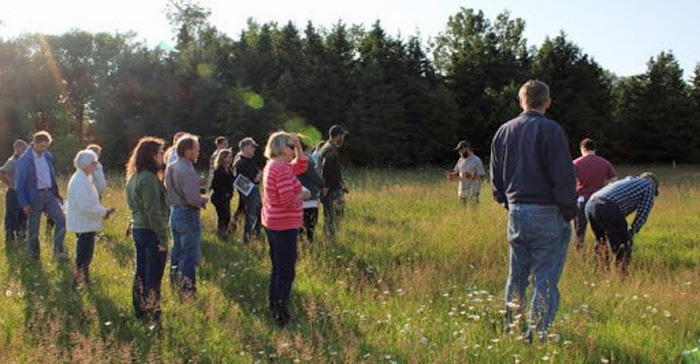Rethinking Lifestyle
Farm Tour Anyone?

Keeping food costs low seems to be the emphasis of our current food system. The weekly flyers coming from the local supermarkets focus on price, and consumers scour these carefully to see what products are on sale and where the price is lowest. Largely this determines where consumers do their shopping. This is the way our free market system is intended to operate.
What’s good about this system is that it keeps everyone in the food supply chain competitive, and the price of food low.
What’s bad about it is that it trivializes other important factors going into the production of our food. These other factors include the sustainability of the system – does it depend on non-renewable inputs and how does the production system affect the soil. Other important concerns not reflected in the price of food is how labour is being treated within that system [the current pandemic crisis has exposed the dependence of the food system on temporary foreign workers living in dormitory conditions]. Then too a price focus in purchasing food reveals nothing about what chemicals are being used within that production system, not does it give any assurance that these production chemicals are absent in the food we eat.
A group of food producers who don’t go for the most economical production method, are the organic producers. These producers have organized to the point where there is now a legal definition of “organic” and there is some control of where the designation “organic” can be used. This is useful for consumers concerned about where the food they consume comes from.
Conscientious consumers, are consumers who are concerned about what has gone into the food they consume, beyond what is reflected in the price. Many of these consumers will find the organic designation helpful. Others may feel their priorities differ somewhat from the organic designation. Their recourse is being in touch with their food producer.
I wonder how many consumers are aware of the difference between the production techniques used by the local producer marketing [lettuce] at the local farmer’s market and the the techniques going into the delivery of lettuce grown in California, processed and preserved appropriately, and then transported thousands of miles to end up on our dinner table.
Farm tours have always been common, and are intended as a place for farmers to learn from one another. But interest in farm tours has never been limited to farmers. A farm tour is also an excellent opportunity for consumers to learn more about how the food they buy is being produced.
The Manitoba Organic Alliance has arranged a number of farm tours this summer, across the province. Details can be found at manitobaorganicalliance.com. These are substantial, five hour tours aimed primarily at farmers, but consumers interested in knowing what goes into the food they eat will also find the tours engaging. Probably a tour of particular interest to readers of this column is a tour of Stoney Brook Creamery and Sardius Holsteins, just outside of Steinbach. This tour is scheduled for July 23. If you’re interested, go to the Manitoba Organic Alliance website to register.




